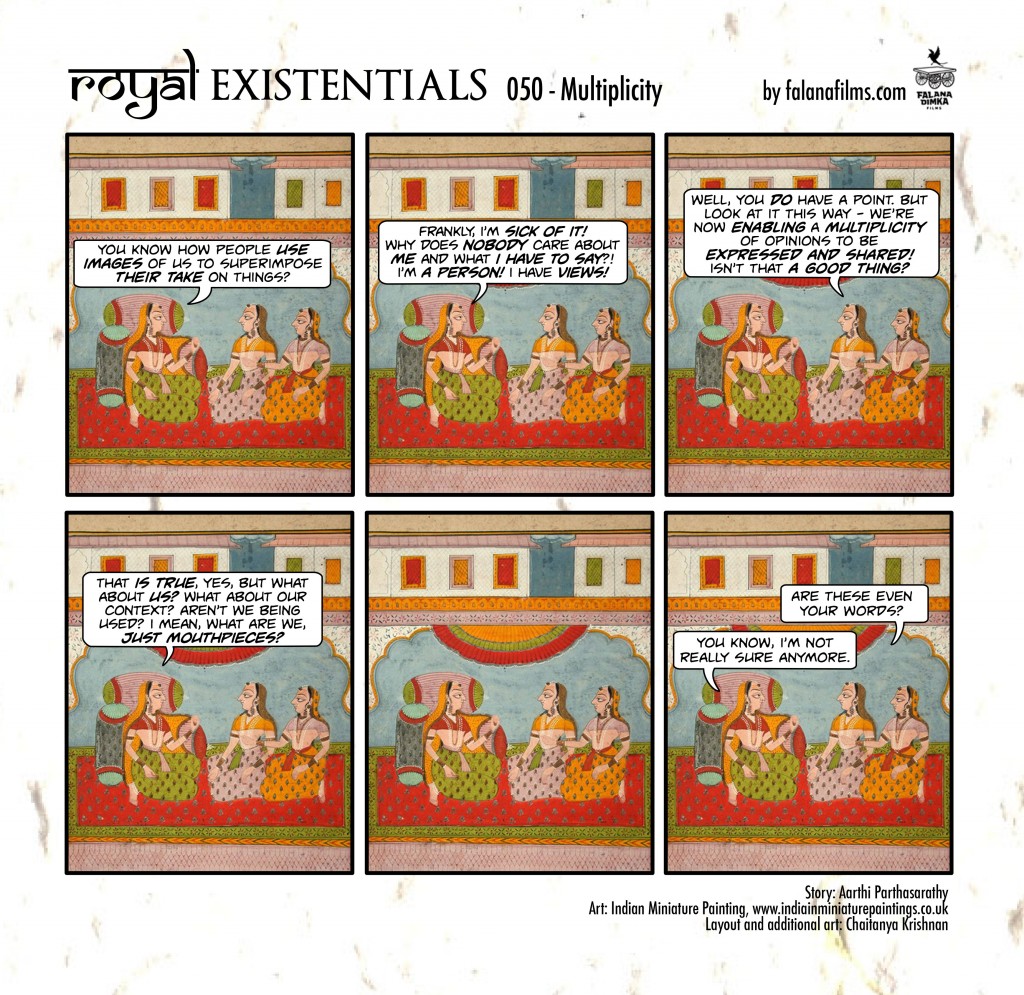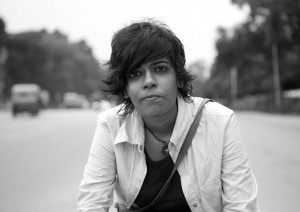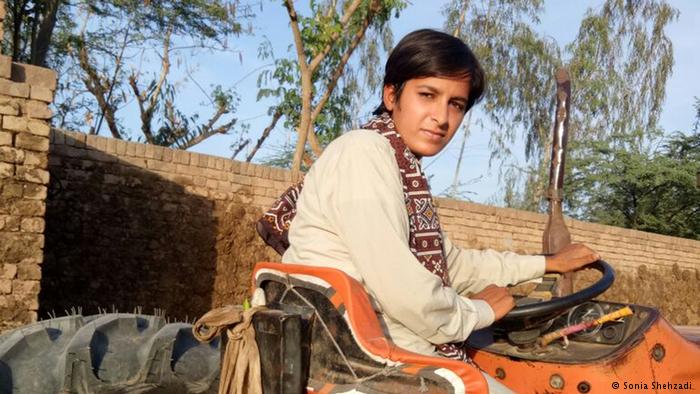Social and feminist commentary through Indian Vintage Art
Royal Existentials is a weekly web-comic series that uses Indian vintage art and imagery as a backdrop for contemporary dialogues. Members of the Mughal family contemplate on conflict, problems of patriarchy and feminism. The miniature paintings tell ironic stories of Queens and Handmaidens who talk about smashing Patriarchy. Roma Rajpal Weiß, WTO Reporter spoke to Aarthi Parthasarathy, the Bengaluru-based author of the series on what inspired her to do the series.
How did you come up with the idea? What inspired you?
I love comics and graphic novels, always have. I spend inordinate amounts of time and money reading them, reading about them. The idea came to me about 3-4 years ago, when I first read David Malki’s webcomic Wondermark, in which he uses Victorian-era illustrations in a quirky style to create hilarious strips. At that time it was just a passing thought, and I didn’t take it forward then, for various reasons, which turned out to be a good thing.
In the last 2-3 years, I’ve spent a lot of time trying to understand things one sees around – various forms of social inequality – issues of race, gender, caste, class, sexuality. The churning seems to have taken this form. In August last year, I was developing the idea of using miniatures, and creating a contrast between the opulent settings and the dialogue on social and political issues. I made one on a whim, named it that night, uploaded it the next morning and announced that it was the first of a series. And then it was a question of just making them every week. It all happened very organically.
What sort of topics do you deal with in your series?
It deals with social inequality, as I mentioned earlier. The first few comics were a reaction to discussions on gender equality and feminism, as that was something I was engaging with at the time. It has since been addressing various issues, like the idea of democracy, representation, privilege, apathy, animal rights etc. These political comics are interspersed with comics on personal, philosophical angst and dilemmas – on the issues of loneliness, free will, right action, the meaning of life etc. Usually, it’s whatever I happen to be thinking about or engaging with that particular week.
Who is your target audience? How has the response been so far?
Well, there’s no target audience as such. I started making them because I liked making them, it was fun for me. Over a few weeks, they got popular with a niche audience, and the response has been great! People have been really supportive of it, there’s been a lot of interesting feedback that’s come our way, and great discussions and conversations around the themes of the comics. That’s been really encouraging and inspiring.
Please tell us about some of your female characters in the comics and their struggles with patriarchy.
An interesting aspect of re-appropriating these images as a writer is subverting women’s roles in these paintings. The women are portrayed as submissive, often accessories in these paintings. But in the writing, I make a conscious effort to create strong characters, give them the insights and the punch lines. Their struggles with patriarchy are articulated in a humorous, irony-filled manner – it helps me process current issues and unpack debates.
What are you currently working on?
I’m working on another project, as a writer, collaborating with artist Kaveri Gopalakrishnan on UrbanLore, a web-comic series about stories, conversations and observations on urban life in India. We just launched it last week, you can see it at: http://urbanlorecomics.com/
Interview: Roma Rajpal-Weiß
Editor: Marjory Linardy
WTO RECOMMENDS
A Kingdom of girls tucked away in an Indian village
Karolin Klüppel, a Berlin-based photographer, travelled to the Indian State of Meghalaya to capture one of the world’s rare matrilineal tribes through her photographic lens. Mawlynnong, a small village tucked away in the Northeastern state of the Meghalaya, bordering Bangladesh, is popularly known as the ‘cleanest village in Asia’. Also touted as the ‘God’s own Garden’ for its mesmerizing scenic beauty, this village is home to the indigenous tribe Khasi.
‘In Joy Or In Pain, Women Must Talk’
Maria da Penha Maia Fernandes was fast asleep when her husband, Antonio Heredia Vivero, a teacher, shot at her. Though she was rushed to the hospital the attack left her paraplegic. Four months later, when she came back home Vivero made another attempt on her life – he tried to electrocute her. But Maria survived yet again.
Rape is a woman’s fault, says Bangladesh police
You will probably not believe this. It was hard for me to digest as well, but this police officer repeatedly said that girls should properly cover themselves to avoid being raped. He told this to a female journalist while sitting in a police station.









